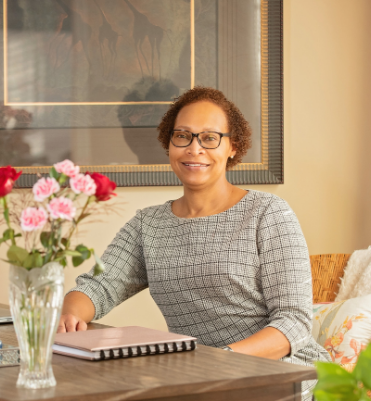Living With an MPN and Being Your Own Best Advocate
Living With an MPN and Being Your Own Best Advocate from Patient Empowerment Network on Vimeo.
MPN patient Rita experienced an extended path to her diagnosis. Watch as she shares her patient journey of varied symptoms, how self-advocacy and self-education assisted in her care, and her tips on how to empower yourself as a patient. In Rita’s words, “Don’t feel bad about advocating for yourself. Your doctor has many patients, but you have only one you.”
Related Resources:

|

|

|
Transcript:
My name is Rita, and I was diagnosed with polycythemia vera in March 2019 after nearly three years of wide-ranging symptoms. Like many patients, my path to diagnosis was long and required me to self-advocate.
I was generally healthy until my symptoms of polycythemia vera began. I first experienced one episode of neck, jaw and chest discomfort, and the hospital blood test showed somewhat elevated platelets, and elevated red cell distribution width (RDW); but the doctors weren’t concerned. Next, I started getting optical migraines that were also dismissed. These were followed by incidents of feeling weak and sweaty; some days with headaches, dizziness, and fatigue; and also looking like I had a sunburn on my face with bloodshot eyes. I dismissed these symptoms. Then I started feeling short of breath at times, especially lying down, and experienced intermittent stabbing underneath my left lower chest area.
After having blood tests done, I had to call to find out my results that showed high hemoglobin, high red blood cells, and high hematocrit levels. After I Googled my test results, the first thing that came up was polycythemia vera. Experiencing additional vision issues, abnormal blood test results, chest pressure, and “foggy headedness” that frightened me, my doctor finally referred me to a hematologist who confirmed my suspicions with a PV diagnosis.
Some things I have learned during my MPN journey include:
- We need to feel comfortable advocating for ourselves, and we need to make sure our doctors are open to being our partner in healthcare rather than our ‘boss’ in health care.
- We also need to educate doctors that what looks like “dehydration” on a CBC could actually be a rare blood cancer.
- Get copies of your own blood test results, X-rays, other medical reports, etc., and, within reason, try to learn what they mean.
- Diagnosed patients should be allowed to self-refer to an MPN specialist rather than be dependent on their physicians to do it.
- We need to self-advocate as “women of a certain age” to make sure we’re not medically or symptomatically reduced to “it’s menopause.”
- Be careful how you express yourself to your doctor, because a careless comment may throw off your path to a correct diagnosis.
- Don’t feel bad about advocating for yourself. Your doctor has many patients, but you have only one you.
These actions are key to staying on your path to empowerment.




